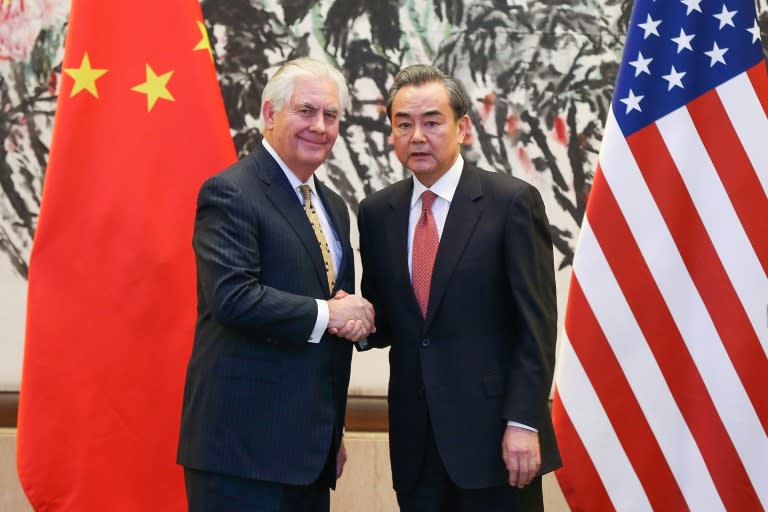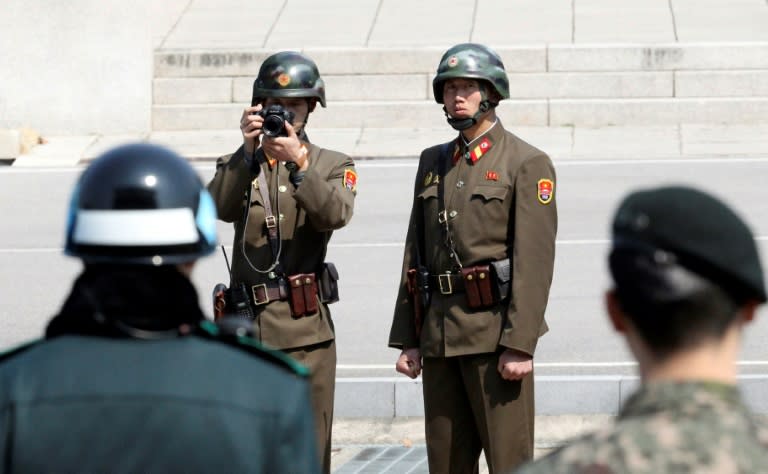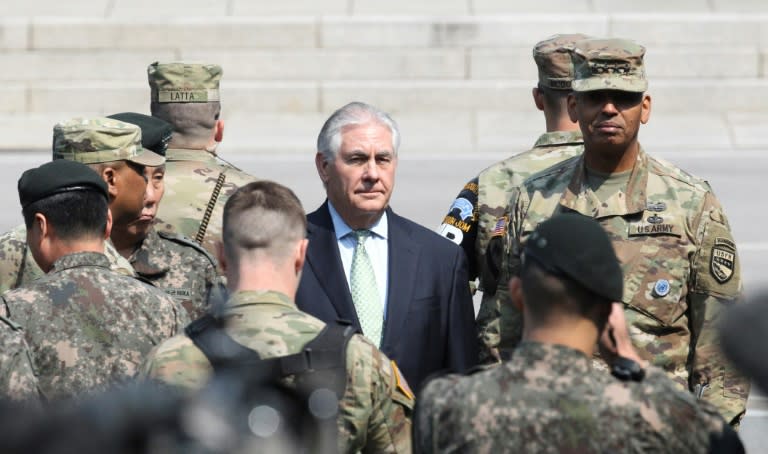US, China to cooperate on 'dangerous' N.Korea situation
The US and China pledged on Saturday to work together in addressing the threat posed by North Korea's nuclear programme, as US Secretary of State Rex Tillerson warned regional tensions had reached a "dangerous level." The language from Tillerson and his Chinese counterpart after talks in Beijing was notably conciliatory after a run-up in which US President Donald Trump accused China of doing nothing to control its rogue neighbour while Beijing blamed Washington for fuelling hostilities. "I think we share a common view and a sense that tensions in the peninsula are quite high right now and that things have reached a rather dangerous level," Tillerson said after talks with Chinese Foreign Minister Wang Yi. "We will work together to see if we cannot bring the government in Pyongyang to a place where they want to make a different course, make a course correction, and move away from the development of nuclear weapons." Tillerson arrived in Beijing earlier Saturday after visits to US allies Japan and South Korea where he said the US would no longer observe the "failed" approach of patient diplomacy, warning that American military action against the North was an option "on the table." But Tillerson refrained from further tough talk in his joint appearance with Wang, who appeared to chide the US diplomat over his rhetoric this week. "We hope all parties including our friends from the United States could size up the situation in a cool-headed and comprehensive fashion and arrive at a wise decision," Wang said. Neither side indicated any concrete next steps, and Tillerson did not explicitly back Beijing's calls for negotiations with North Korea, which Washington has rejected. - Twitter blast - In a Friday Twitter blast, Trump had accused Beijing of failing to use its leverage as North Korea's key diplomatic and trade partner. "North Korea is behaving very badly. They have been 'playing' the United States for years. China has done little to help!" Trump said. The hardened US stance followed two North Korean nuclear tests last year and recent missile launches that Pyongyang described as practice for an attack on US bases in Japan. Beijing is reluctant to squeeze the unpredictable North, now led by Kim Jong-Un, too hard lest it trigger a confrontation or messy regime collapse. China, however, has accused Washington of escalating tensions by holding military exercises with its ally Seoul and deploying an anti-missile system in South Korea. Beijing wants to resume multi-lateral diplomatic negotiations with North Korea on dismantling its nukes -- which UN resolutions bar it from having. Various rounds of such talks in years past failed to deter Pyongyang. - Summit looms - "We both hope to find ways to restart talks and do not give up hope for peace," Wang said. China has criticised the US get-tough approach, saying diplomacy was the "only feasible option" and challenging the Trump administration to propose a clear alternative. One reason for the amicable tone Saturday may be that delicate negotiations are under way for President Xi Jinping's first summit with Trump next month in the United States. Trump has been a frequent China critic, and the encounter could be crucial to setting the tone in the big-power relationship. Tillerson was expected to meet Xi on Sunday morning. Beijing shares US concerns over Pyongyang but has been accused of not fully enforcing UN sanctions. But it took one of its toughest steps yet in February, halting all imports of North Korean coal -- a key source of income for the impoverished state -- for the rest of this year. Wang Dong, a North Korea expert at Peking University, said it was wrong to think Beijing can control the unpredictable and head-strong Pyongyang. "It is unreasonable for the United States to accuse China of doing nothing on the DPRK (North Korea)," Wang said. "This is an extremely complex and sensitive issue. There is no one magic formula." The Obama administration had ruled out diplomatic engagement until Pyongyang fully committed to denuclearisation. North Korea insists it needs nuclear weapons for defense. It conducted its first underground atomic test in 2006, triggering global condemnation. Four more followed. There was no immediate reaction from North Korea but the country's top newspaper Rodong Sinmun carried a commentary Saturday threatening to launch a devastating nuclear attack if the US takes military action. "Should the US government continue putting pressure on us, efforts to seek a new exit (in the nuclear impasse) would be lost forever," it sai





